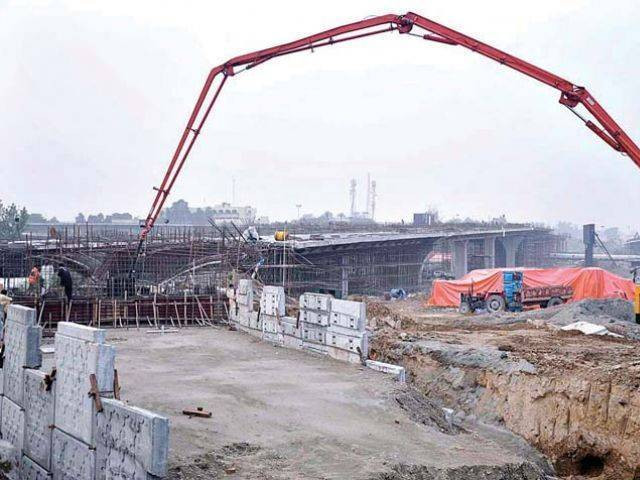Strategy paper: Govt finalises contours of upcoming budget
Sets ambitious 6.2% growth and Rs1.32t budget deficit targets for next fiscal.

PHOTO: APP
The federal cabinet on Wednesday approved an ambitious budget framework for the new fiscal year that envisages a 6.2% economic growth target without removing structural bottlenecks and only a Rs1.32 trillion budget deficit, highlighting contradictions in the new strategy.
Headed by Prime Minister Nawaz Sharif, the federal cabinet approved the Budget Strategy Paper, which will become the basis for the 2016-17 budget that Finance Minister Ishaq Dar will unveil on June 3. The size of next year’s budget is likely to be around Rs4.4 trillion.
The cabinet approved the tax collection target for the Federal Board of Revenue at Rs3.735 trillion – Rs631 billion or 20.3% higher than outgoing fiscal year – which appears very ambitious. Federal development spending, including on security, is projected at Rs800 billion for next fiscal year. Excluding security spending, federal spending is projected at Rs655 billion, against the demand of Rs1 trillion by the planning ministry.
The current expenditures are projected to be around Rs3.4 trillion, which will be 7.6% higher than outgoing fiscal year.
About Rs200 billion will be kept for social safety net and grants to provinces.
For the new fiscal year, the inflation target has been set at 6% while investment in terms of total size of the economy is targeted at 18.7% of Gross Domestic Product. The investment target also appears ambitious, as public investment would remain below the desired level due to tight limitations on budgetary spending.
The framework was approved just days before Pakistan and International Monetary Fund will start negotiations for the approval of last loan tranche of the $6.2 billion package in addition to vetting the current government’s second last budget.
However, there is an inherent flaw in the just approved budget framework, which will result in Pakistan missing key macroeconomic targets like the last three budgets. The finance ministry also informed the cabinet that the outgoing fiscal’s economic growth target of 5.5% will be missed.
Similarly, economic growth and investment targets set for next year are far higher than projections made by international financial institutions.
The total foreign currency reserves are projected to be increased to $23.6 billion by end of next fiscal year.
Before the next general elections, the federal government wants to switch from consolidation to economic expansion mode, therefore, the federal cabinet approved next year’s GDP growth target at 6.2%. However, due to the IMF programme, it set the budget deficit target – the gap between expenditures and income – at only 3.8% of GDP or Rs1.32 trillion. The target is Rs104 billion or 0.3% higher than the IMF has so far indicated. Sources in the finance ministry said the government would seek this much relaxation from the IMF on the pretext of additional spending while fighting the war on terror.
Either the GDP growth target or the budget deficit target will be missed, said the sources in the finance ministry. The IMF and World Bank projections for next fiscal year show that Pakistan’s economy will marginally grow to 4.8%, which is far lower than 6.2% target approved by the federal cabinet.
Although the government has implemented some reforms, a lot has to be done in order to achieve a growth rate upwards of 6%. Main reforms to address structural issues in areas of taxation, energy, business climate and state-owned enterprises remain unimplemented, showed a recent report of the IMF.
The finance ministry informed the cabinet that the additional investment under CPEC would further boost the rapid growth in economy and the recent gains in improving security environment would help induce private investors to contribute their share in accelerating growth.
The tax to-GDP ratio has been projected at 12.5% in the next fiscal year, slightly better than this year. The debt-to-GDP ratio is approved at 59.4%, which is far lower than the projections given by the IMF. The IMF has projected that in the next fiscal year, the debt to GDP ratio will be 63.6%.
Published in The Express Tribune, April 28th, 2016.



















COMMENTS
Comments are moderated and generally will be posted if they are on-topic and not abusive.
For more information, please see our Comments FAQ